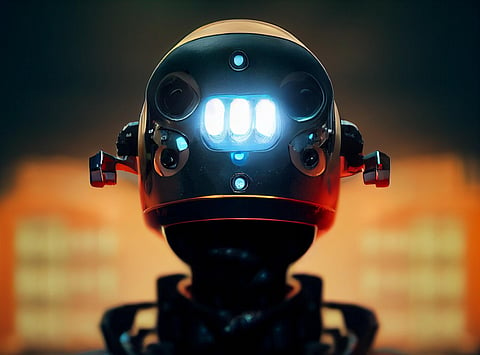

As Google turns 25, Chief Executive Sundar Pichai has called artificial intelligence “the biggest technological shift” of our lifetimes, and said integrating it into various products will be the “most important way” for Google to deliver its mission. The world’s most popular search engine was started by Stanford graduates Sergei Brin and Larry Page with a mission to “organize the world’s information and make it universally accessible and useful”.
“Over time, AI will be the biggest technological shift we see in our lifetimes,” Pichai writes in a new blog post. “It’s bigger than the shift from desktop computing to mobile, and it may be bigger than the internet itself. It’s a fundamental rewiring of technology and an incredible accelerant of human ingenuity.”
Machine learning – the provision of massive amounts of computing power and data to software systems to create brain-like networks to transcend limitations of human intelligence and memory – is set to revolutionize all sectors of human endeavor – from predicting stock price movements to creating art.
Interestingly, one of the key businesses AI is expected to threaten is Google’s cash cow – search.
Currently, finding the answer to any question involves two steps: one - running a search on an engine like Google, and two - going to the individual websites thrown up in the search and locating the answer manually.
However, several AI engines – notably OpenAI’s ChatGPT – promise to drastically simplify the above process by reducing it to a single-step process: Ask the question on chat, and get the answer immediately, without going to any third-party websites. The function of going to third-party websites, analyzing the information there, filtering, processing and evaluating it, and figuring out whether it is relevant to your doubt, is done by the AI engine, instead of the person making the query.
However, search is just one of the areas that will be massively disrupted.
Sophisticated and highly capable learning models could make most of the current human ‘jobs’ and sources of livelihood redundant.
For example, already AI is able to design creative posters without the help of humans, seems well on its way to put poster artists out of work. Similarly, it is able to more accurately diagnose diseases than many, if not most, doctors, and come up with better legal strategies than what many lawyers can think of currently.
And it’s not just the white-collar professions that are under threat. AI, within the next five years, is also expected to become smart and accessible enough to be able to replace many blue-collar workers, such as truck and cab drivers, waiters and janitors.
Back to Google, Pichai said one of the first things he wanted to do, when he became the CEO of the Mountain View, California-based company, was that Google should pivot to be an “AI-first company”.
“Google has been investing in AI since almost the beginning. We were one of the first to use machine learning in our products, starting in the early 2000s, for spelling corrections, improving the quality of ads, and showing suggestions and recommendations.”
He said one of his most powerful experiences with AI was witnessing, 11 years ago, a demo of how Google's research team had used machine learning and neural networks to crack what human programmers had found impossible to automate – image recognition.
“It was the first moment I thought to myself: this is really going to change everything!”
Pichai pointed out that Google has contributed several innovations that have enabled AI to scaler higher peaks.
“We invented Tensor Processing Units, or TPUs — which provided dramatic performance improvements of 30X to 80X for machine learning over other hardware at the time…we released our landmark Transformer paper in 2017, which created the neural network architecture that’s the foundation for most of the generative AI and large language models today,” he said.
He said Google is deploying generative AI in products such as its new Search Generative Experience (SGE) and the “Help Me Write” feature in Gmail.
At the same time, Pichai said, Google is also aware of the possible risks from the misuse of such technology.
“We understand that AI, like any early technology, poses complexities and risks,” he said. “Our development and use of AI must address these risks, and help to develop the technology responsibly…For example, just last week we introduced SynthID, a tool for watermarking and identifying AI-generated images, which will help address an important issue around transparency.”